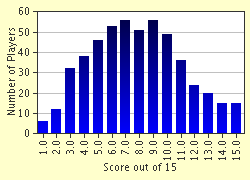Quiz Answer Key and Fun Facts
1. What was the official name of the Weimar Republic?
2. From 5-12 January 1919 saw the first Spartacist uprising in Berlin, which was brutally suppressed. What were the Spartacists?
3. A National Assembly met in February 1919 to draw up a new constitution for Germany. Where did it meet?
4. The new Constitution adopted in February 1919 had a flaw that proved fatal. What was it?
5. The new government, headed by the Socialist Democrats, had to sign a harsh peace treaty for Germany in June 1919. Where?
6. In March 1920 there was an unsuccessful right-wing putsch in Berlin. How is it referred to?
7. When was the Great Inflation stopped?
8. When and where did the Nazis first attempt a putsch?
9. The period is well known for a flowering of many branches of the arts in Germany, including literature (especially drama), the film, painting, architecture and design. The 'Bauhaus' School is associated most closely with the name of its founder. Who was he?
10. Which actress starred in the film 'The Blue Angel' and settled in the USA when the Nazis came to power?
11. Who was Chancellor from August-November, 1923 and then Foreign Minister till his death in October, 1929? His greatest achievements included a signficant improvement in relations with the Western powers and negotiating the entry of Germany into the League of Nations. His name was ...?
12. In what year did Hitler acquire German citizenship?
13. The Nazi Party (NSDAP - Nationalsozialistische Deutsche Arbeiter-Partei = National Socialist German Workers' Party) was founded in 1920. Where?
14. The 'Great Inflation' was one of the DIRECT and IMMEDIATE causes of the Nazi seizure of power.
15. The first President of Germany was Friedrich Ebert. Who succeeded him in 1925 and appointed Hitler as Chancellor in 1933?
Source: Author
bloomsby
This quiz was reviewed by FunTrivia editor
gtho4 before going online.
Any errors found in FunTrivia content are routinely corrected through our feedback system.
